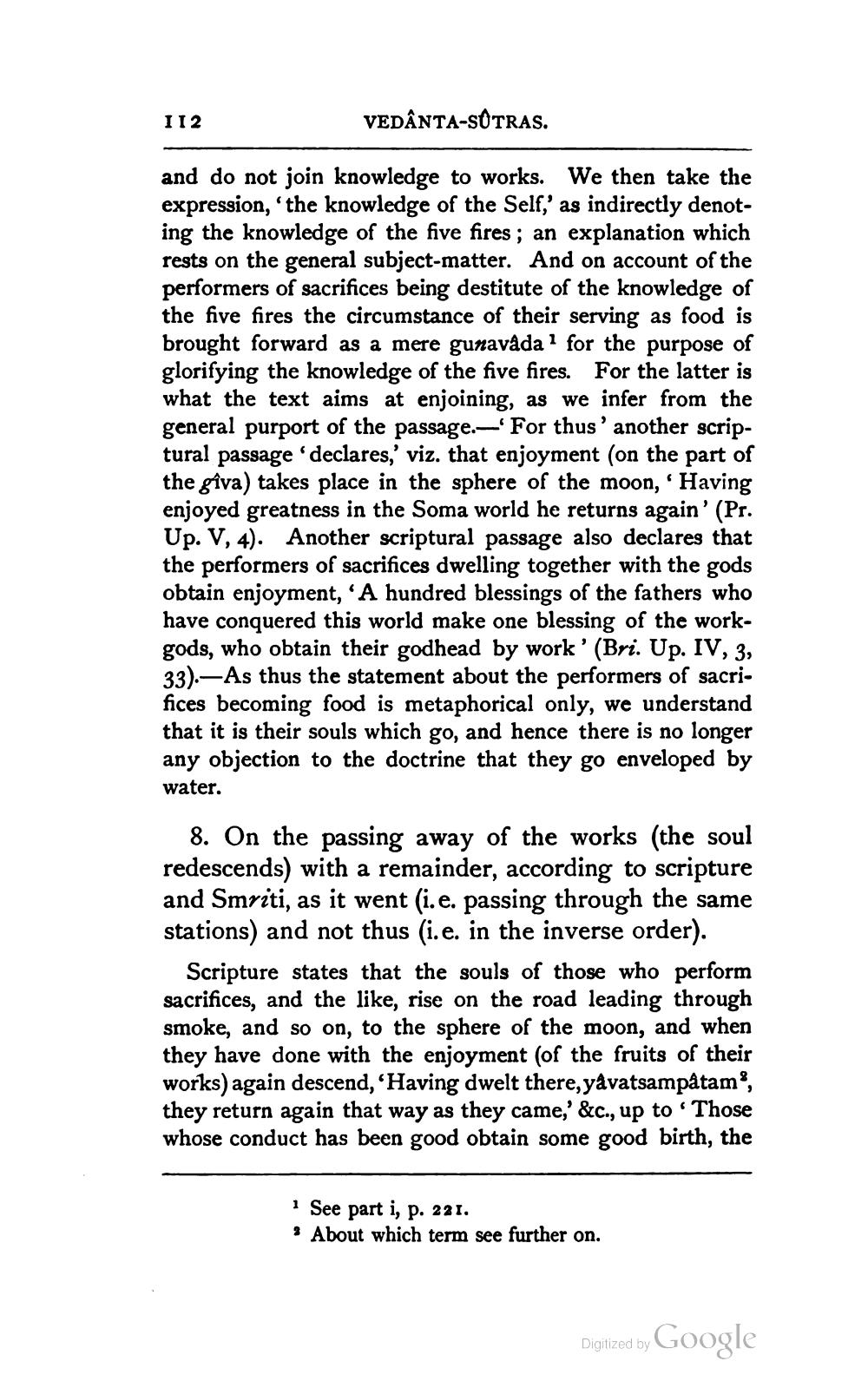________________
VEDANTA-SUTRAS.
and do not join knowledge to works. We then take the expression, 'the knowledge of the Self,' as indirectly denoting the knowledge of the five fires; an explanation which rests on the general subject-matter. And on account of the performers of sacrifices being destitute of the knowledge of the five fires the circumstance of their serving as food is brought forward as a mere gunavâda1 for the purpose of glorifying the knowledge of the five fires. For the latter is what the text aims at enjoining, as we infer from the general purport of the passage.-' For thus' another scriptural passage 'declares,' viz. that enjoyment (on the part of the giva) takes place in the sphere of the moon,' Having enjoyed greatness in the Soma world he returns again' (Pr. Up. V, 4). Another scriptural passage also declares that the performers of sacrifices dwelling together with the gods obtain enjoyment, ‘A hundred blessings of the fathers who have conquered this world make one blessing of the workgods, who obtain their godhead by work' (Bri. Up. IV, 3, 33). As thus the statement about the performers of sacrifices becoming food is metaphorical only, we understand that it is their souls which go, and hence there is no longer any objection to the doctrine that they go enveloped by
water.
112
8. On the passing away of the works (the soul redescends) with a remainder, according to scripture and Smriti, as it went (i.e. passing through the same stations) and not thus (i.e. in the inverse order).
Scripture states that the souls of those who perform sacrifices, and the like, rise on the road leading through smoke, and so on, to the sphere of the moon, and when they have done with the enjoyment (of the fruits of their works) again descend, 'Having dwelt there, yâvatsampâtam3, they return again that way as they came,' &c., up to 'Those whose conduct has been good obtain some good birth, the
1 See part i, p. 221.
About which term see further on.
Digitized by Google




